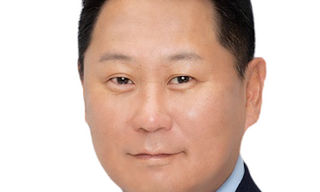Although Shanghai is the top fundraising center in 2022 thus far, daily life disruptions persist with negative headlines piling up to new heights in China’s financial capital of 25 million residents.
After announcing with much fanfare in June that it would gradually reopen following an unpopular two-month lockdown, Shanghai continues to be the subject of tight restrictions and unpredictable disruptions.
Residents of China’s financial capital have been reportedly locked down in a variety of locations such as restaurants, gyms and offices. The most notable incident was the lockdown of Ikea’s flagship store last week after one individual was found to have been exposed to a positive Covid case. This resulted in a chaotic scene that included an escape by shoppers that managed to force guards to reopen a door originally closed to quarantine those within.
Shanghai residents’ privacy may also have been compromised with claims on an online forum by anonymous internet user «ChinaDan» of a hack against public databases linked to the city’s health code app.
Not Just Covid
Worries in Shanghai are not limited to just Covid-related matters.
On security, another hacker claims to have stolen data from a police data management dashboard that had been left open on the public internet without password protection for more than a year, according to a «Wall Street Journal» report last month, potentially compromising 1 billion users.
And in the latest, Shanghai underwent power cuts in order to respond to a surge in demand for electricity from what officials say is higher usage in air conditioning to cope with extreme weather conditions such as the heat wave and the worst drought in neighboring Sichuan province in over half a century. In an unprecedented scene, Shanghai dimmed exteriors, including landscape lighting and billboard ads, on its famed Bund riverfront as part of a two-day suspension to better manage electricity use.
Fleeing Wealth
Unsurprisingly, those with the means have been considering their options with an eye on relocation.
In April during the height of the Shanghai lockdowns, the WeChat Index saw a seven-fold spike in the number of word searches for «immigration». While Australia, US, UK and Canada remained popular choices, there was reportedly greater consideration for deteriorating foreign relations with increased preference for politically friendly destinations like Singapore or Ireland.
One of the most notable examples was by Yimeng Huang, billionaire CEO and chairman of Shanghai-based gaming company XD, whose internal memo announcing his relocation with his family out of China was leaked and went viral on social media. According to Huang in the note, the ideal scenario was to wait for China to relax its Covid quarantine policies before international relations can improve to allow individuals to «move around as the needs of our work and lives dictate».
Flight from China is not limited to Shanghai with 10,000 high net worth individuals nationwide and $48 billion in wealth expected to leave the mainland, according to a recent report by Henley and Partners.
Fundraising Leader
Interestingly, Shanghai’s rank as a financial hub rose this year as the city became the leading venue for initial public offerings. According to Deloitte, the Chinese financial capital recorded 68 IPOs that raised over $32 billion in the first half, up 49 percent, helping it secure the top spot compared to fourth place last year.
And this was achieved in spectacular fashion as financial professionals simultaneously shouldered the challenges of China’s strict zero-Covid rules. Immediately prior to the two-month lockdown, banks, brokers, asset managers and other financial firms rushed staff in before a 5am deadline with some asking employees to camp out in the office during the lockdown and rest in sleeping bags. At the Shanghai Stock Exchange, hundreds of staff were reportedly living in the office as the bourse publicly committed to maintaining operations.
Banker Pay Cuts
Despite strong performance under challenging conditions, financial professionals will not be rewarded in accordance with historical rates.
As part of Beijing’s drive for «common prosperity», investment bankers have seen their salaries shrink, starting in 2021, and the trend gained momentum this year. According to a «Reuters» report citing unnamed sources, state-owned investment banks including CICC, Citic Securities and China Merchants Securities implemented pay cuts as high as 60 percent. Other means of cost controls include delayed bonus payments and slashed allowances for travel and entertainment.
According to estimates, a senior investment banker in China previously earned a total remuneration of between three million and 10 million yuan ($440,000 to $1.5 million) a year, excluding stock incentives.






















